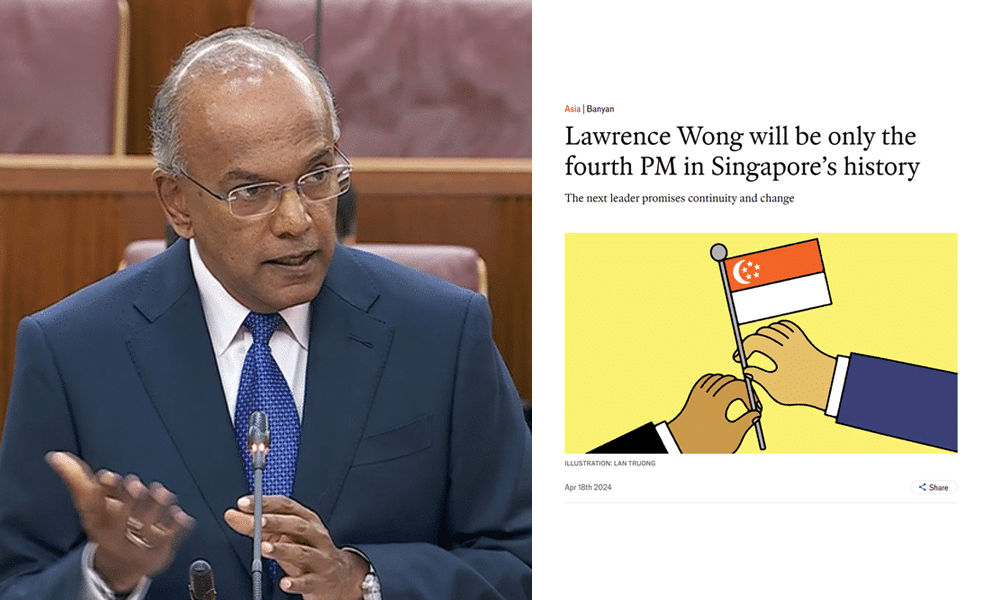Law and Home Affairs Minister K Shanmugam has sharply criticized The Economist for its commentary on Singapore’s political leadership transition.
In a Facebook post published on 19 April, Shanmugam expressed disdain for what he perceived as condescension from the British publication, stating that it “can’t resist sneering” at how Singapore manages its political succession.
The Economist’s critique, “Lawrence Wong will be only the fourth PM in Singapore history,” which appeared on 18 April, highlighted that Singapore is on the verge of appointing Lawrence Wong, its fourth Prime Minister in 59 years. It remarked that Wong “remains relatively unknown among Singaporeans” and was not the first choice of the so-called fourth generation (4G) leaders. It pointed out that Deputy Prime Minister Heng Swee Keat had previously withdrawn from the race in 2021.
In his rebuttal, Shanmugam accused The Economist of harbouring a bias stemming from Britain’s historical role as Singapore’s colonial master. He charged that British commentators are irked by Singapore’s success, stating, “They can’t stand that a people they were accustomed to lecturing are now doing better than they are, across the board.”
Shanmugam contrasted Singapore’s stable political environment with Britain’s recent tumult, noting that Rishi Sunak is Britain’s fourth Prime Minister in just under five years following Brexit-related political instability.
Singapore is set to transition to Wong on 15 May from Prime Minister Lee Hsien Loong, who has held the position for the past two decades.
Wong was named PM Lee’s successor in April 2022 after his first designated successor, Heng Swee Keat, stepped aside the year before for reasons such as having “too short a runway.”
Further defending Singapore’s governance, Shanmugam highlighted the nation’s superior economic metrics, with a per capita GDP significantly higher than that of the UK.
He also lauded Singapore’s media landscape, which he argued is less influenced by powerful media moguls compared to Britain.
Regarding societal metrics, Shanmugam claimed Singapore offers “far better healthcare, housing and education,” and excels in public safety and social cohesion compared to Britain.
He illustrated this by pointing out the high percentage of unsolved crimes in England and Wales, a situation he described as “unthinkable and unacceptable” in Singapore.
The Economist had described Wong as a “compromise candidate” and a “highly competent former technocrat,” suggesting that while his victory in the upcoming general election is almost certain, the real challenge will be to gain moral legitimacy amidst demands for fairer growth and more participatory politics from younger Singaporeans.
Last September, the Ministry of Communications and Information (MCI) issued a warning to Dominic Ziegler, who is bureau chief for The Economist in Singapore, over “actions that constituted interference in our domestic politics”.
A new Cabinet is expected to be sworn in alongside Wong when he becomes Singapore’s fourth Prime Minister. Several names have been mentioned in the media as potential candidates for the deputy prime minister position.
Shanmugam, who has served as Minister for Law since 2008 and Minister for Home Affairs since 2015, is not among those anticipated by local media to be appointed as DPM.

